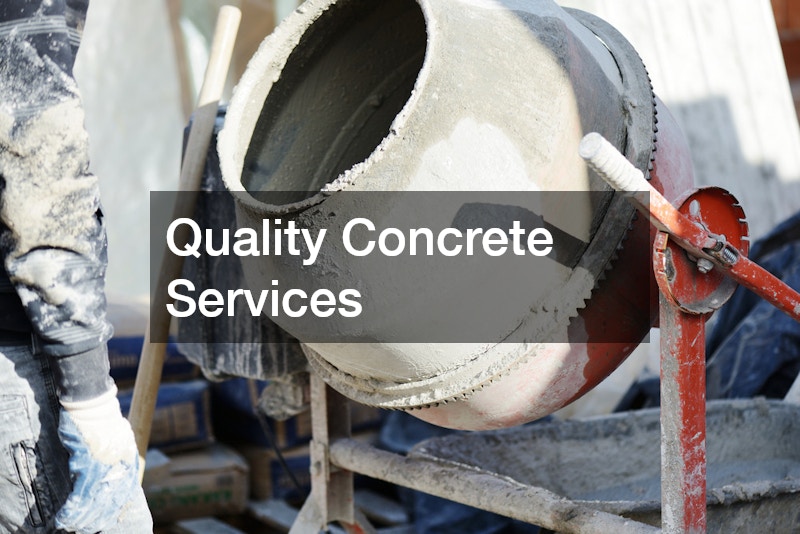Embarking on a journey in the construction industry requires more than sheer determination; it demands a comprehensive home builder business plan that serves as a roadmap to success. Crafting a detailed plan is crucial because it outlines the company’s vision, mission, and strategies, providing clarity and direction to achieve business goals. A well-structured home builder business plan not only guides the internal operations of a firm but also plays a significant role when dealing with stakeholders such as investors, clients, and suppliers. It encompasses various crucial elements of the industry, from legal issues and safety considerations to marketing strategies and logistical operations. In today’s competitive market, especially with challenges such as rapidly changing regulations and increasing customer expectations, a home builder business plan is indispensable for achieving sustainable growth and building a reputable brand. This article aims to explore the multifaceted aspects of such a business plan, delving into different areas that significantly affect the operation of a construction firm. Whether you are an aspiring home builder or a seasoned entrepreneur seeking to refine your existing plan, understanding the nuances of creating a successful business strategy can empower you to navigate the complexities of the construction industry with confidence.
1. Employee Insurance

One of the primary responsibilities of a home builder is ensuring the safety and well-being of their employees. Adequate employee insurance is a pivotal aspect of any home builder business plan, as it provides necessary protection and peace of mind to the workforce. In the construction industry, the risk of accidents is significantly high, and having comprehensive insurance coverage minimizes potential liabilities and financial setbacks.
Construction accidents law firms often emphasize the importance of having a solid insurance policy, as it can mitigate the impact of work-related incidents. A well-established insurance plan not only covers medical expenses and lost wages but also protects the company against potential lawsuits. By prioritizing employee insurance, a home builder can foster a safe and supportive working environment, which is essential for maintaining high productivity and morale.
Implementing employee insurance also demonstrates the company’s commitment to the health and safety of its workers. This commitment enhances the organization’s reputation and can attract skilled professionals who are vital for constructing high-quality homes. As part of the home builder business plan, regular assessments of insurance policies ensure they meet current standards and adequately cover the unique risks associated with construction work.
2. Conduct Market Research
For any home builder, understanding the market landscape is crucial in developing a strategic business plan. Conducting thorough market research helps identify trends, customer preferences, and other local roofing companies. A detailed analysis of market conditions allows firms to tailor their products and services to better meet client needs and stay ahead of the competition.
The home builder business plan should incorporate insights from market research to inform decisions on pricing strategies, product offerings, and marketing campaigns. Understanding demographic information and buying behaviors enables firms to create targeted marketing efforts that effectively reach potential customers. Local roofing companies, for example, can benefit from market research by identifying regions with high demand for roofing services, thus optimizing their expansion strategies.
Market research also illuminates gaps and opportunities within the industry, empowering home builders to innovate and differentiate themselves from their rivals. By keeping abreast of emerging technologies and materials, companies can position themselves as leaders in the field, offering cutting-edge solutions that resonate with modern homeowners. Regular market analysis ensures that the business plan remains relevant amongst as a top local roofing company and adaptable in an ever-evolving marketplace.
3. Managing Business Calls
Effective communication is the backbone of any successful construction firm, and managing business calls is an integral component of a home builder business plan. Seamless interaction with clients, suppliers, and stakeholders requires a reliable communication infrastructure and professional in-call handling practices. Utilizing a business VOIP service offers numerous advantages over traditional phone systems, including cost-effectiveness, scalability, and enhanced features tailored for corporate needs.
A dedicated team or system for managing business calls can significantly improve the customer experience by ensuring prompt responses to inquiries and efficient scheduling of appointments. This seamless communication fosters trust and strengthens relationships with clients and partners, bolstering the company’s reputation in the industry. Moreover, organizing and tracking calls provides valuable data that can be analyzed to identify inefficiencies or areas for improvement within the communication process.
The integration of advanced communication technologies within the home builder business plan aligns with modern business practices and consumer expectations. It allows firms to maintain professionalism in their interactions, whether dealing with new homebuyers or construction partners. By prioritizing effective call management, companies can enhance their operational efficiency and deliver exceptional service to their clientele.
4. Matching Uniforms For Employees

Branding is a critical element of a home builder business plan, and matching uniforms for employees play a significant role in establishing a cohesive brand identity. Uniforms contribute to a sense of unity and professionalism within the workforce, fostering a positive work culture that aligns with the company’s values and mission. Additionally, personalized attire featuring logos or labels from a custom patch business enhances brand visibility both on-site and in public.
Implementing matching uniforms has practical advantages, such as promoting safety and ensuring that employees adhere to dress code standards reflective of industry best practices. Consistent presentation among staff builds credibility with clients and instills confidence in the quality of services offered. In the construction world, where first impressions matter, a professional appearance can influence customer perceptions and decision-making processes.
Beyond aesthetics, uniforms serve functional purposes by accommodating necessary safety gear or equipment. When selecting uniforms, companies must consider the comfort, durability, and suitability of materials to withstand daily wear and outdoor conditions. By prioritizing employee attire within the home builder business plan, firms can create a professional image that resonates with both customers and industry peers.
5. Legal and Regulatory Considerations
Navigating the legal and regulatory landscape is a crucial component of a comprehensive home builder business plan. Adhering to construction laws and regulations ensures compliance with industry standards, minimizing the risk of penalties or operational disruptions. This aspect of the business plan entails obtaining necessary permits, licenses, and approvals before initiating any construction project.
Legal expertise from construction accidents law firms can aid home builders in understanding liability issues and implementing safety measures that comply with OSHA training requirements. Incorporating ongoing employee training programs demonstrates a commitment to maintaining the highest standards of safety and legality on job sites. These practices not only reduce the occurrence of accidents but also enhance the firm’s reputation as a responsible and ethical builder.
Adopting proactive legal strategies within the business plan helps in anticipating regulatory changes and adjusting policies accordingly. Regular consultations with legal professionals keep company management informed of evolving laws and industry standards. By prioritizing legal and regulatory considerations, home builders can operate more efficiently while safeguarding their interests and those of their clients.
6. Moving Building Supplies
Logistics and supply chain management are fundamental elements of any successful home builder business plan. Efficiently moving building supplies to and from job sites demands careful planning, coordination, and reliable partners. Collaborating with heavy duty towing services ensures the timely and safe transportation of essential materials and large equipment, minimizing delays in project timelines.
A strategic approach to logistics involves selecting local suppliers and contractors to reduce transportation costs and support the community. Establishing strong relationships with these partners can lead to improved rates, priority service, and flexible delivery options. The home builder business plan should include contingency measures for unforeseen circumstances, such as supply chain disruptions or adverse weather conditions, to maintain project momentum.
Inventory management is another critical component of material logistics, requiring precise oversight to ensure that supplies are available when needed. Implementing digital tracking systems can streamline operations, reduce waste, and enhance overall productivity. By prioritizing efficient supply chain logistics, home builders enhance their capability to deliver high-quality projects on time and within budget.
7. Quality Concrete Services

Concrete installations are integral to the construction process, forming the stable basis on which homes are built. As such, quality concrete services are a crucial consideration within a home builder business plan. Selecting reliable contractors for concrete installations ensures that foundation, flooring, and structural elements meet industry standards and client expectations.
Collaboration with experienced professionals in concrete services is vital for achieving superior results, as they possess the technical skills and expertise to execute complex installations under varying conditions. These partnerships can provide insights into innovative materials and construction techniques that enhance efficiency, sustainability, and durability. Expanding knowledge in this area allows builders to offer clients advanced solutions for their construction needs.
Quality assurance is paramount in concrete work, as any defect can compromise the safety and longevity of the structure. Routine inspections throughout the installation process help identify potential issues early, preventing costly mistakes and rework. Prioritizing quality concrete services in the business plan underscores a commitment to excellence and reinforces the builder’s reputation as a trustworthy provider.
8. Building Waste Removal Services
Effective waste management is a critical component of responsible construction practices, making it an essential part of the home builder business plan. Partnering with dumpster rental services facilitates efficient disposal of construction debris and ensures compliance with environmental regulations. Cleanly organized job sites not only enhance worker safety but also promote a positive image to clients and the community.
Incorporating sustainable waste removal practices, such as recycling and reusing materials, can significantly reduce the environmental impact of construction projects. Collaborating with waste management companies provides access to eco-friendly disposal solutions that align with industry sustainability goals. A proactive approach to waste management reflects a home builder’s commitment to environmental stewardship and sustainable development.
Clear communication and coordination with waste removal services are essential for maintaining smooth operations on construction sites. Planning for timely removal prevents clutter and obstructions, optimizing space and efficiency. By addressing waste management within the business plan, home builders can maintain organized, eco-conscious job sites that support long-term growth and success.
9. Necessary Equipment
Access to the right tools and equipment is crucial for executing construction projects safely and efficiently. Planning for necessary equipment is an integral part of a home builder business plan, outlining strategies for procurement, maintenance, and operation. Collaborating with a local equipment rental company offers a cost-effective solution for obtaining specialized machinery without requiring significant upfront investments.
Renting equipment also provides flexibility, enabling home builders to select machinery that meets the specific demands of each project. Additionally, rental agreements often include maintenance services, ensuring that tools are in optimal condition. This approach reduces downtime associated with equipment failures, further enhancing productivity and adherence to project timelines.
When strategizing equipment needs, consideration must be given to future growth and technology advancements. Investing in modern, energy-efficient tools may offer a competitive edge by reducing operational costs and supporting sustainable building practices. By effectively managing equipment resources within the business plan, home builders can optimize their project execution capabilities and drive operational excellence.
10. Building a Strong Foundation

A robust foundation is the keystone of any construction project, underscoring its importance within a home builder business plan. Deliberate attention to foundation design and construction can prevent significant structural issues and ensure the stability of the home. Partnering with experts in foundation repairs aids in selecting appropriate materials and techniques tailored to the site’s unique conditions.
Comprehensive geotechnical assessments inform foundation decisions by evaluating soil composition, load-bearing capacity, and environmental factors. These considerations enable home builders to implement foundation solutions that offer long-term durability and resilience. Addressing foundational integrity from the outset mitigates the risk of future damage, minimizing costs and project setbacks.
A strong foundation is not only a testament to construction quality but also serves as a critical selling point for homebuyers. By emphasizing superior foundational work in the business plan, builders can position themselves as reputable providers of secure and enduring homes. The commitment to creating solid foundations reinforces the strength and reliability of the overall business strategy.
In conclusion, a well-crafted home builder business plan is essential for navigating the complexities and challenges of the construction industry. By addressing critical areas such as employee insurance, market research, communication, branding, legal considerations, logistics, quality services, waste management, equipment procurement, and foundational work, firms can establish a comprehensive strategy that drives growth and success. Each component plays a vital role in supporting the company’s operations and enhancing its reputation as a leading construction firm.
The dynamic nature of the industry requires adaptable planning and continuous assessment to maintain relevance and competitiveness. Regular updates and strategic revisions to the business plan ensure alignment with evolving customer demands, regulatory changes, and technological advancements. Ultimately, the business plan serves as a guiding framework for achieving long-term objectives while maintaining high standards of quality and safety.
As the construction sector continues to evolve, the importance of a meticulous home builder business plan cannot be overstated. It acts as a blueprint for success, enabling companies to build lasting legacies and deliver exceptional value to their clients. By investing time and resources in developing a thorough business plan, home builders can confidently tackle challenges and capitalize on opportunities in an ever-changing market landscape.






